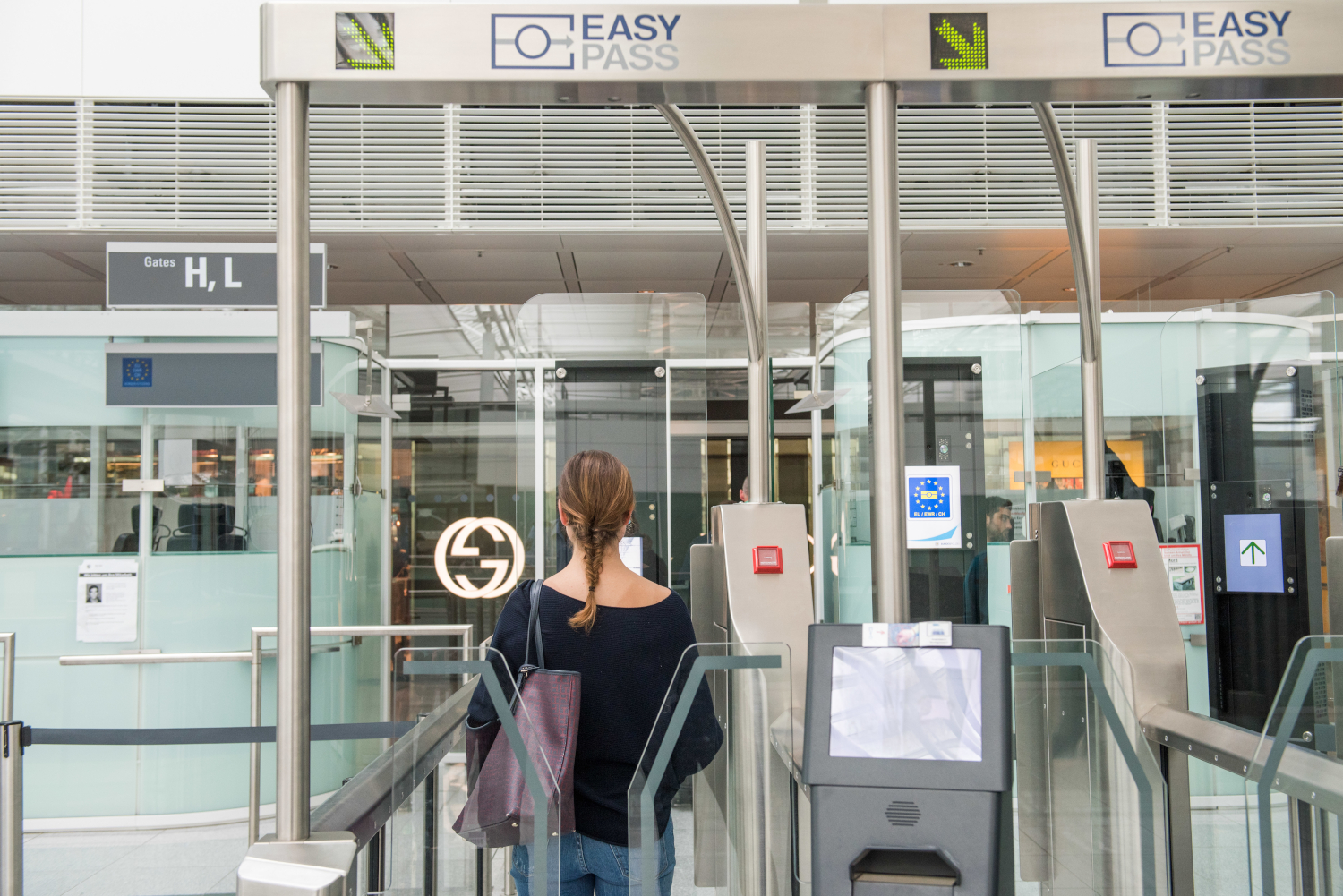In six months’ time, travellers from third countries will have their passports, fingerprints and facial images checked automatically. Because of the time-consuming procedure, the German Federal Police is hoping for the timely delivery of self-service machines and is considering a call for help to Frontex.
End of May 2023, the European Union will put a new biometric database into operation. All travellers to the EU will then have to provide four fingerprints and their facial image as part of the Entry/Exit System (EES) and have their passport automatically scanned. This will affect citizens of those countries that benefit from the visa-free regime for short stays in the Schengen area. It makes no difference what the reason for the journey is.
With the EES, the EU member states want to identify so-called “overstayers”. This refers to persons who overstay a maximum of 90 days and do not leave within the prescribed period. The new system also eliminates the manual stamping of travel documents. In the EES, registration is only done electronically.
Initial registration “time-consuming”
Due to the obligatory submission of biometric data, the time required for each individual border control increases significantly. For the Federal Police, for example, a tripling is expected, writes the Federal Ministry of the Interior in response to my request. Admittedly, the ministry only assumes an increase in control time of around 40 per cent. However, simulations with the aviation industry have calculated an increase of up to a factor of three in some constellations.
So far, no scenarios are publicly known as to when waiting times could return to normal. However, frequent travellers do not have to expect the long procedure every time they cross the border. Once registered, the data is stored in the system for three years. A “re-registration” within this period is therefore no longer necessary for this group of people, writes the German airport association ADV on request.
The ADV spokeswoman did not want to give a forecast on the expected delays for all other travellers. However, the initial recording of the data is “time-consuming”, they say. To counter the long waiting times and queues, the international airports are working closely with the Federal Police and the Federal Ministry of the Interior, according to the association.
Delivery of “self-service machines” undetermined
“Normalisation should occur after a short transitional phase, as soon as the measures introduced take effect and the travellers affected are familiar with the changes in border control,” the Interior Ministry says. With “communication measures”, the Federal Police is to draw attention to the increased waiting times and possible countermeasures.
In order to save the authorities time, travellers are to take care of the collection of their data themselves. The Federal Police is setting up a total of 500 “self-service machines” for this purpose. Their number is based on a notification of demand from the airports. The ministry does not explain which companies were awarded the contract. Initially, 120 systems are to be installed at two large German airports by the end of 2022.
It remains unclear when all these machines will be available. The commissioning depends “on the contractor’s ability to deliver”, the ministry says vaguely. However, there are major difficulties in this market. Because of the global “shortage of chips”, the launch of the EES, once planned for the end of September 2022, had already been delayed by several months.
EasyPASS is being spruced up
In addition to the new ” self-service machines”, the already existing German border control system EasyPASS is to be further developed. So far, these are only partially automated kiosks for persons with EU citizenship. The Federal Police want to expand this user group to include third-country nationals with a German residence title.
Via a “Registered Traveller Programme” (EasyPASS RTP), the German EasyPASS system can also be used in a fully automated way when travellers come from a non-EU country. The prerequisite is that the state issues electronic passports and has concluded a “declaration of reciprocity” with the Federal Government on the use of automated border control procedures.
For the installation of EasyPASS lanes as well as “extensive renewals of hardware and software components”, the Federal Police received EU money of almost €16 million from the Internal Security Fund.
“Registration apps” for handing over personal data
Waiting times could also be reduced with the help of “registration apps” or a “digital web application”, writes the Federal Ministry of the Interior. This should also make “language barriers” at manual border controls a thing of the past. To this end, the EU Commission had announced that travellers would be able to scan their fingerprints and facial images on their mobile phones and transmit them to the authorities of the destination country before crossing the border. So far, however, such an app to “advance the collection of data” (German MoI) has not yet been published.
The German Ministry of the Interior expects particularly long waiting times “at peak times”. This probably means weekends. In June, shortly after the EES goes into operation, the summer holidays begin in some EU countries. Travel agencies are thus not very enthusiastic about this date. Some EU member states therefore want to ask Frontex to send EU officials.
Whether the German Federal Ministry of the Interior will also ask the EU border agency for help, remains open. In its answer, it evasively states that the expansion of the border control infrastructure goes hand in hand with “an assessment of personnel needs and the adjustment of personnel resources in line with requirements”. An EU document published by the British civil liberties organisation Statewatch is more explicit. “It is considered to ask Frontex for deploying members of the Standing Corps at the largest German airports,” it says.
Image: The partially automated EasyPASS system is also being integrated into the EES (Federal Police).





Leave a Reply